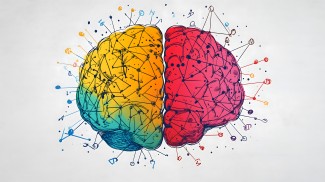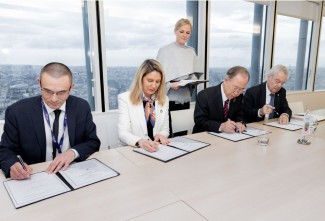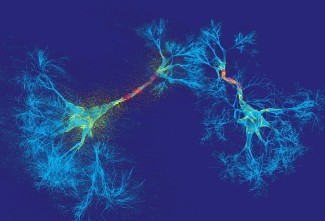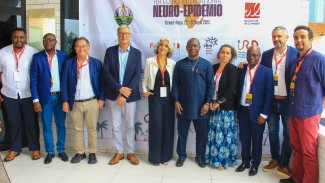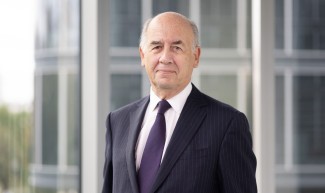As part of the call for the group leader position launched in spring 2021, two young researchers have been selected from 260 to develop their own research teams within the Institute. These two teams will develop completely new scientific and technical approaches, in line with the Institute’s 2023-2030 multi-year innovation plan.
The first of these two teams, the Gut Sense Lab, will join the Institute in September, and will be led by Dafni Hadjieconomou.
Dafni Hadjieconomou, currently a postdoctoral fellow at Imperial College (London, UK), will join the Institute in September 2023. Her research will focus on the “brain-gut” axis, with the aim of identifying the fundamental, evolutionarily conserved mechanisms by which intestinal neurons regulate metabolism.
A communication network between the brain and the gut, known as the “brain-gut axis“, has recently emerged as a key player in metabolic regulation. Nevertheless, the cells and molecular mechanisms involved in this interaction are still poorly understood.
Using a Drosophila fly model, Dafni Hadjieconomou has recently shown that adult enteric neurons are functionally plastic, and that this plasticity is physiologically important to subserve metabolic demands. This work was carried out in the context of reproductive needs in females, a physiological paradigm for adjusting food intake to metabolic needs that is conserved in several species.
The work that Dafni Hadjieconomou intends to carry out at Paris Brain Institute will focus on the influence of this mechanism in other homeostatic states, such as obesogenic diets or elevated levels of physical activity. It will be integrative and will aim to identify the relevant enteric neurons, brain circuits and molecular effectors at play.
The research carried out by this new team will enable us to identify the fundamental and probably evolutionarily conserved mechanisms used by intestinal neurons to regulate metabolic regulation or contribute to the onset of pathologies.
The team “Neuronal Circuits & Brain Dynamics” at Paris Brain Institute will start in January 2024, led by Dr. Nikolas Karalis, currently an SNSF Ambizione team leader at the Friedrich Miescher Institute for Biomedical Research in Basel, Switzerland.This new team aims to unravel the fundamental principles underlying neural circuit organization and to decipher how the collective action of neurons gives rise to the intricate brain dynamics that define our internal brain states.
Our internal states, such as being sleepy, hungry, afraid, or happy, profoundly influence our daily experience, and define our behavior and actions. These states are characterized by unique signatures of activity across neural circuits and are actively shaped by neuromodulators, such as dopamine, serotonin, acetylcholine, and norepinephrine. Nearly all mood disorders are associated with the imbalance of neuromodulators, and most therapeutic strategies attempt to restore this balance. However, how combinations of neuromodulators define distinct brain configurations and shape internal states remains unknown.
The team of Dr. Karalis will focus on how the simultaneous release and balance of neuromodulators and bodily signals, such as breathing and heart rhythm, contribute to the implementation of internal states at the level of distributed neural circuits. This work will help to better understand the role of combinatorial neuromodulation and brain-body interaction in the regulation of brain networks and holds promise for advancing our fundamental understanding of brain function in health and disease.


